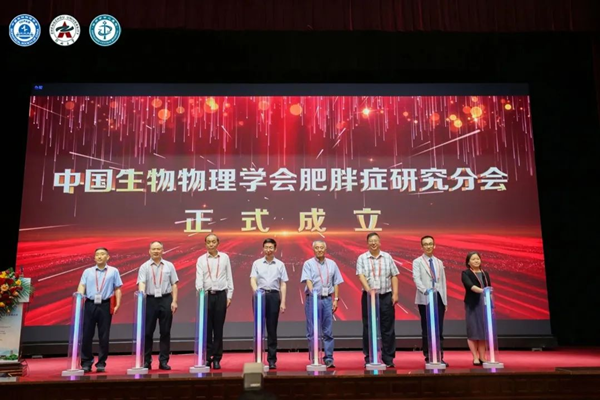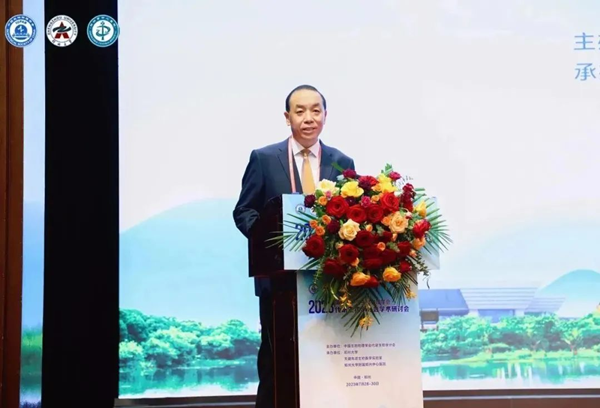Home> News
BSC establishes obesity research subgroup
Updated: 2023-08-18
The inaugural conference and first general assembly of the Obesity Research Academic Subgroup of the Biophysical Society of China (BSC) took place in Zhengzhou, Henan province, on July 28. Spearheaded by Zhengzhou University (ZZU), the subgroup is affiliated with the university's Zhengzhou Central Hospital.

The BSC Obesity Research Academic Subgroup is established on July 28 in Zhengzhou, Henan province. [Photo/WeChat account: BSC]
The event brought together over 200 experts and scholars and elected the leadership and council members of the subgroup.

Dong Zigang, president of the BSC Obesity Research Academic Subgroup, introduces the development plan of the subgroup. [Photo/WeChat account: BSC]
The subgroup’s newly elected president Dong Zigang, also vice-president of ZZU and dean of its College of Medicine, outlined the subgroup’s development plan, expressing its commitment to establishing a robust organizational structure and creating a platform to remain at the forefront of international obesity research.
The subgroup aims to pioneer novel diagnostic and treatment methods and drive technological advancement, industrial upgrading, and drug innovation. Collaborative innovation and translational achievements among hospitals, universities, research institutes, and pharmaceutical enterprises will be emphasized, said Dong.
Efforts to disseminate knowledge on obesity and related issues will be intensified through various media platforms. The establishment of a network for metabolic disease prevention and treatment will be a key initiative, benefiting a larger number of individuals affected by obesity, the president added.

Lian Hongkai, vice-president of the subgroup, speaks at the meeting. [Photo/WeChat account: BSC]
Lian Hongkai, president of Zhengzhou Central Hospital Affiliated to ZZU and vice-president of the subgroup, also shared his insight, highlighting the hospital's commitment to academic exchanges, collaborative learning, and the construction of a high-standard platform. With obesity research as its focal point, the hospital intends to foster innovation across multiple domains, including basic research, clinical translation, and drug development.
The establishment of standardized diagnostic and therapeutic protocols aims to effectively reduce the incidence, mortality, and disability rates associated with obesity and metabolic diseases, ultimately enhancing the subgroup's impact, Lian noted.
